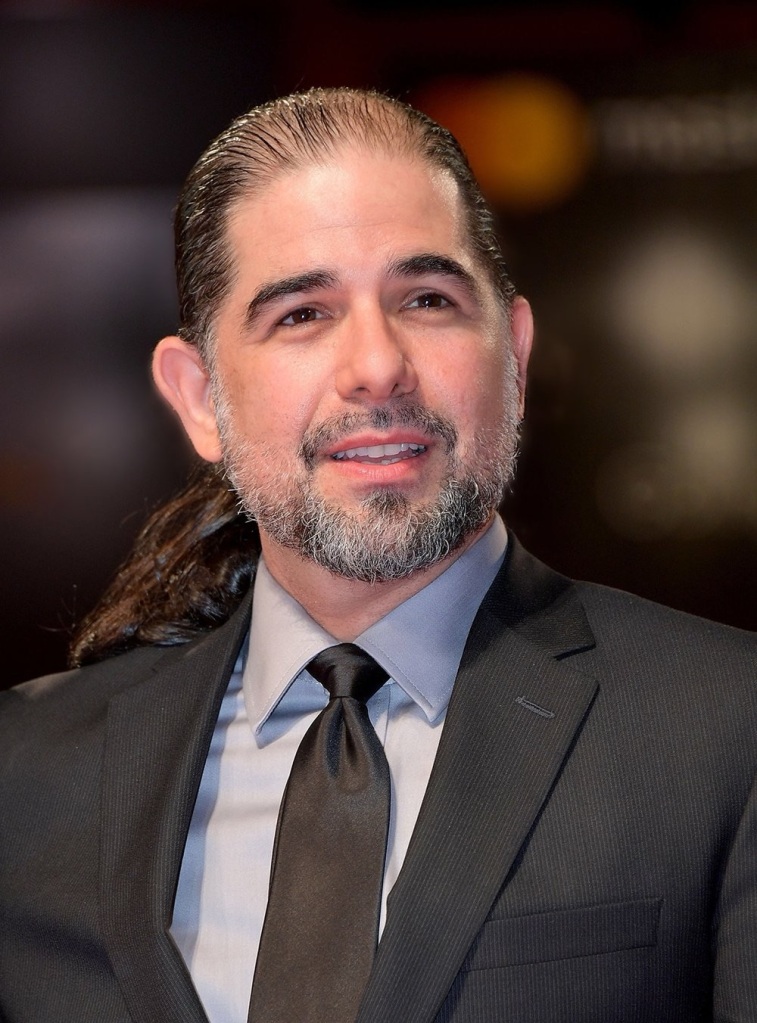
A Punk Noir Interview
with
S. Craig Zahler
I can probably count the “big time” grit-lit writers who consistently blow me away and are still living on one hand. They’re few and far between these days…
That’s what makes this particular Punk Noir Interview all the more special.
It’s not just an interview with one of my favorite living writers, it’s also an interview with one of my favorite living film directors.
— S. Craig Zahler —
Author of brutal crime classics Mean Business on North Ganson Street and The Slanted Gutter.
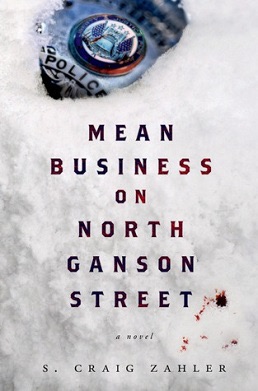
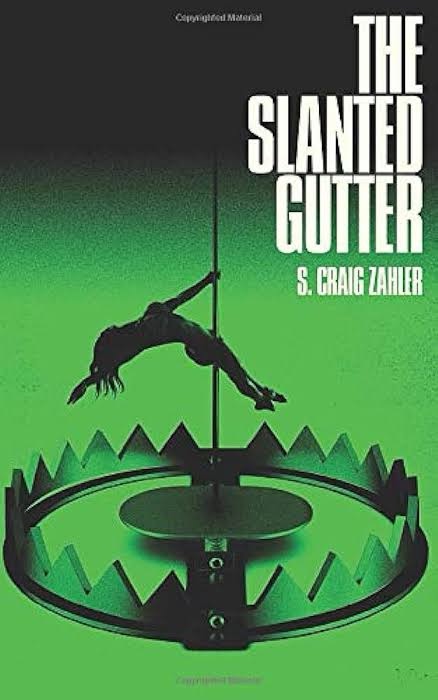
Not content with mastering the crime genre, Zahler is also the author of two of the best western stories I’ve ever read: A Congregation of Jackals and Wraiths of the Broken Land.

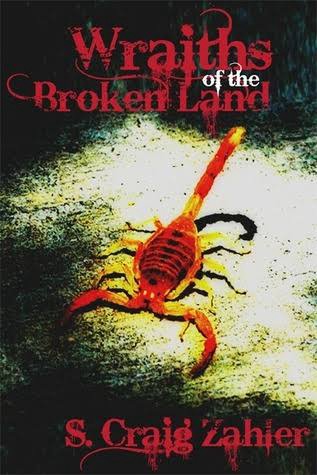
He’s also the writer and director of a few of the best movies to come out in the last decade. Dragged Across Concrete is probably one of my top films of all time. It’s an absolutely relentless and hard-boiled crime flick starring Vince Vaughn and Mel Gibson putting in their best performances to date. There’s also the western horror Bone Tomahawk which is horrifically good.


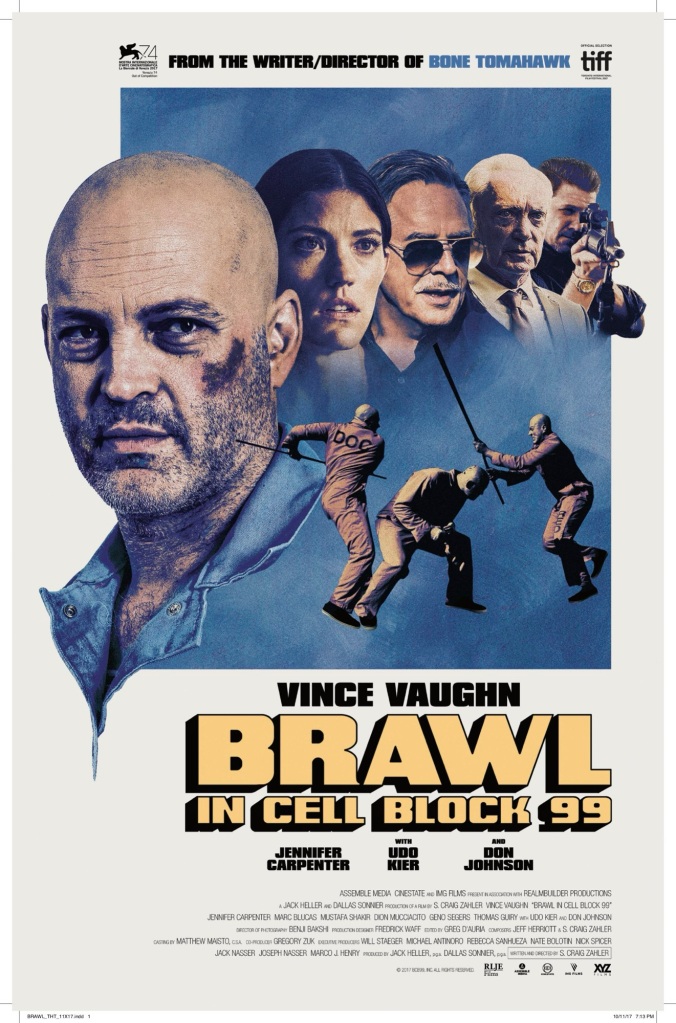
In an age where Hollywood turns out disappointing rehash after rehash and the literary establishment seems content to play it safe, S. Craig Zahler is a refreshing and much needed voice.
Anyway, all my fan-boying aside, here’s S. Craig Zahler!
Mr. Zahler, thanks so much for agreeing to an interview with Punk Noir Magazine. I know you’ve got many fans amongst our readers. To kick things off, what’s the main aim you strive to achieve when you sit down to write a novel?
I want any story I tell in any medium to be emotionally and intellectually engaging and stay in the minds of the audience beyond the duration of the work itself. I want the story to be vividly rendered and clear, unless I am intentionally being ambiguous. Each medium has different strengths and limitations, and I find books especially good for telling longer stories than those found in movies and comics. Books are also the best place for diving directly into the thoughts of the central characters. I’ve never written a movie script with voice overs narrating a character’s thoughts, for instance, but that medium has different strengths in terms of immediacy.
Slanted Gutted and Mean Business are two of my favorite crime novels and have stayed with me since I first read them. Could you tell me a couple of your own favorite novels?
Thanks Stephen—I’m glad you enjoy those pieces that much.
My top two favorite crime novels were both written by Harry Stephen Keeler; Riddle of the Traveling Skull and The Sharkskin Book. These are old mysteries from 1934 and 1941 with incredibly funny dialogue, great atmosphere, and labyrinthine, unrealistic plots that demonstrate the incomparably creative mind of their author.


My third favorite crime book is The Damnation of Adam Blessing by Marijane Meaker, writing as Vin Packer. This is a superb and seedy character study with criminal acts at the fringes.

In terms of tough, hard-edged crime books that better compare to the kind of work I do myself, I will point out three favorites: George V. Higgins’ Rat on Fire, David Goodis’ Shoot the Piano Player, and Soldato! by Marvin H. Albert (writing as Al Conroy).

Below are reviews I posted on Goodreads for Soldato!, The Damnation of Adam Blessing, and The Riddle of the Traveling Skull.
****
Marvin H. Albert (writing as Al Conroy) delivered a very smart mob-centered crime story with his novel Soldato!, published in 1972. This was the first book in a Men’s Adventure series, though the novel feels 100% complete and not at all setting up a sequel, much less four of them.
This was the second work I’ve read by writer Albert. The first one was Driscoll’s Diamonds, a good, far more exotic, and “spicier” tale that wasn’t as crisp or believable as this one in terms of its plotting and characterizations, but still recommended and fun.
In Soldato!, a mob boss employs a special investigator to find a protected witness and multiple lives become unraveled as a result. Albert delivers two very compelling (and conflicting) protagonists in this book, a believable antagonist, and a handful of other characters, all of whom work their own angles and second guess everything. Every person in this book THINKS. (The titular gunslinger in the author’s well-plotted western Clayburn is similarly methodical.)
The immediacy and small scale of Soldato! compare to many works I’ve read by Charles Willeford, David Goodis, and Harry Whittington, but the characters in this book often behave smarter and more believably. The guy on the the run and those who track him have the verisimilitude of the people who inhabit George V. Higgins books rather than many of Albert’s paperback peers and pulp predecessors. These characters’ histories are interesting; the tactics they use always make sense and are often extremely clever. Reading this book, you really get the sense of the author playing chess against himself as he wrote each well-conceived strategy or angle.
In addition to the believable characters, Albert created a sustained 50+ page cat-and-mouse action sequence in the wild that is tense, beautifully staged, smart, and continually evolving. This suspenseful tour-de-force was enhanced by some well-chosen changes in perspectives, though such shifts were occasionally detrimental to Driscoll’s Diamonds, which had a greater number of characters and lost some clarity as a result. Another extended sequence involving an injured character is vividly and artfully handled–I see now why paperback enthusiasts are very fond of this author.
Soldato! is top-level Men’s Adventure/mob fiction with smart people, sharp conflict, and an uncommon level of realism. A publisher should really reprint this one–my weathered copy wasn’t cheap, and it literally fell apart as I read it.
****
Excellent writing and fascinating characterization detail the sad and humorous story of Adam Blessing.
This book is written by Vin Packer (whose real name is Marijane Meaker), and it is an engaging, funny and uncomfortable reading experience that I’d rank alongside or above the best noir pieces by my other favorite crime novelists—David Goodis, Charles Willeford, George V. Higgins, and Jim Thompson—though this is certainly less plot oriented and even more character driven than their books. It also brings to mind Fellini at his finest (the touching, The Nights of Cabiria) and some of the edgier character study movies that came out in the 70s.
The Damnation of Adam Blessing is a funny, disorienting and cringe-inducing book, an episodic–yet cumulative–journey wherein the oblivious protagonist proves to be an often unreliable narrator. It is probably not considered essential literature because of the pulpy way in which it was originally marketed, but this is superb stuff that works on every emotional level and is worth more serious study and admiration than most commonly regarded “classics.” This is my favorite book by her, though The Twisted Ones and The Thrill Kids are nearly as good.”
****
The Riddle of the Traveling Skull (1934) is an incredible book and my sixth favorite novel of all time.* At the beginning of this story, the protagonist comes upon an oddly adorned human skull in a travel bag, and what follows is the wildly twisting investigation of the aforementioned cranial artifact.
After reading eighty pages of this work, I ordered a couple of other books by Harry Stephen Keeler, and before I had reached the end of the novel, three (not inexpensive) first editions where en route to my apartment. (The last time I was so enormously impressed by an author was when I discovered the impassioned and unhinged works of the versatile lunatic Norvell W. Page.)
The midnight fever dream that Keeler builds in this novel is a confluence of magnificent coincidences, passionate asides, heaped minutiae, idiosyncratic characters, and blindsiding twists, where shocking plot revelations are followed by amazingly complex explanations.
The author’s aptitude at setting expectations, inverting them, and then twisting them again and again (and yet again) is worthy of accolades, and what is most commonly discussed about his work, though he has other serious talents besides his notably convoluted plotting. The Riddle of the Traveling Skull often proves to be exceptionally moody– Chapter XXIII is absolutely masterful in this regard. And in addition to his abilities with atmospherics, Keeler’s humor is terrific and sharp, reminding me a bit of Mervyn Peake– surprising exclamation points and odd diatribes burst from mouths of many of the characters of this richly realized world.
This book is recommended to people who savor creativity, humor, oddity, and invention, and it is not recommended to pretentious/insecure people who use horrible phrases like “so bad, it’s good” or “guilty pleasure” to defend liking something that is dated or unrealistic or perhaps not deemed “sophisticated” by the intellectual elite. Really, don’t people have better things to do with their lives than read things that they think are genuinely bad? And if the book succeeds at what it’s trying to do–as this one does spectacularly–then it isn’t “bad” or “cheesy” and readers should enjoy the eccentric success, without such pretentious qualifications.
The Riddle of the Traveling Skull is from another era and is not an attempt at realism, but a wild, engaging and brilliantly implausible crazy mystery told by an exceptionally distinct craftsman who has no known peers. The Sharkskin Book by Keeler is just as good, and the best twist I’ve ever read in my life can be found in his book The Case of the Two Strange Ladies.
*My Top 10 novels
10. The Damnation of Adam Blessing (Marijane Meaker aka Vin Packer)
9. The Dreamquest of Unknown Kadath (H.P. Lovecraft)
8. Childhood’s End (Arthur C. Clarke)
7. The Sharkskin Book (Harry Stephen Keeler)
6. The Riddle of the Traveling Skull (Harry Stephen Keeler)
5. The Three Imposters (Arthur Machen)
4. Diaspora (Greg Egan)
3. Wuthering Heights (Emily Bronte)
2. Gormenghast (Mervyn Peake)
1. Titus Groan (Mervyn Peake)
Very cool list. I’ll check those novels out. Moving on from titles slightly, what writer/author has inspired you the most?
This is tricky because I find different aspects of different writers inspirational. H.P. Lovecraft’s ability to create dread and atmosphere inspire me whenever I create horror sequences, but the direct, clear prose of Richard Laymon and Norvell W. Page better relate to how I write violence and action: clear, vivid, and surprising with very few literary flourishes. In terms of dialogue George V. Higgins and David Goodis are ongoing inspirations.
Great! What are your thoughts on the current state of the literary world?
I have found more support for my movies, scripts, music, and graphic novels (which I also draw) in their respective businesses than I have for my prose books. This is disappointing and surprising because my books are actually the best received of all of my works…and publishing a book costs only a fraction of what making a movie costs. Right now, I am still looking for a publisher for my new fantasy novel, which seems to be “too weird and too literary” for regular genre publishers and yet “too committed to the fantasy genre” for the literary world. Regardless, good books and writers can be found in any era, and even though I mostly read old dead guys, I enjoy a number living authors like Ted Chiang, Greg Egan, Richard Price, Lawrence Block, Schuyler Hernstrom, Brian Hodges, Sam Pink, and Carlton Mellick III.
And to finish up, what advice would you give to new authors?
I will suggest for new authors to write books that they themselves want to read rather than write books for certain markets because those markets sell well. New authors should write books suited to their own individual voices—ideally, books that nobody else is writing. Doing so may not lead to great paydays, but should lead to creative satisfaction and an ongoing interest in creating more fiction.
Massive thank you to S. Craig Zahler for taking the time for this wonderful interview.
If you haven’t read any of his novels or watched any of his movies yet, go do it now! You’ll thank me later.

S. Craig Zahler is an award-winning screenwriter, director, novelist, cinematographer, and musician. He wrote, directed, and co-composed the score for the 2015 film BONE TOMAHAWK, an Independent Spirit Award nominated picture (Best Screenplay; Best Supporting Actor) starring Kurt Russell, Patrick Wilson, Matthew Fox, and Richard Jenkins. The film garnered praise from critics and fans alike, including the New York Times, who called BONE TOMAHAWK, “[a] witty fusion of western, horror and comedy that gallops to its own beat”. Zahler more recently wrote and directed BRAWL IN CELL BLOCK 99, a New York Times Critic’s Pick, starring Vince Vaughn, Jennifer Carpenter, and Don Johnson, which premiered at the Venice Film Festival and also went on to critical acclaim. Both movies were added to the permanent collection of the Museum of Modern Art in New York City in 2017. Mel Gibson, Vince Vaughn, and Tory Kittles star in Zahler’s new crime drama DRAGGED ACROSS CONCRETE.
Zahler’s debut western novel, A Congregation of Jackals was nominated for the Peacemaker and the Spur awards, and his 2014 novels Mean Business on North Ganson Streetand Corpus Chrome, Inc. both received starred reviews for excellence in Booklist. His newest book is Hug Chickenpenny: The Panegyric of an Anomalous Child, a gothic tale that he will bring to the silver screen with the help of his new creative partners, The Jim Henson Company. After reading this strange story, Clive Baker declared, “S. Craig Zahler is certain to become one of the great imaginers of our time.”
In addition to writing and directing, Zahler has founded and played in several bands, including the doomy epic metal outfit Realmbuilder, whose albums have been released by I Hate Records of Sweden. With longtime friend and songwriting partner Jeff Herriott, S. Craig Zahler co-composed the orchestral score for BONE TOMAHAWK, and the soul music for BRAWL IN CELL BLOCK 99 and DRAGGED ACROSS CONCRETE as well as the jazz compositions for the latter. Zahler and Herriott also make music as Binary Reptile, a synthesizer project that provided the music for the ear movie, THE NARROW CAVES.
(Interview by Stephen J. Golds)
Stephen J. Golds was born in North London, U.K, but has lived in Japan for most of his life. He speaks the language pretty well and makes great takoyaki.
He writes primarily in the noir and dirty realism genres and is the editor-in-chief of Punk Noir Press.
Some of his writing influences are Charles Bukowski, John Fante, James M. Cain, Tobias Wolff, Sarah Kane and Jim Thompson.
He enjoys spending time with his daughters, reading books, traveling the world, boxing and listening to old Soul LPs. His books are Say Goodbye When I’m Gone, I’ll Pray When I’m Dying, Always the Dead, and Shadows Slow Dancing in Derelict Rooms. His poetry collections are Poems for Ghosts in Empty Tenement Windows I Thought I Saw Once, and Half-Empty Doorways and Other Injuries. He also has a short story and poetry collection titled Love Like Bleeding Out With an Empty Gun in Your Hand.
